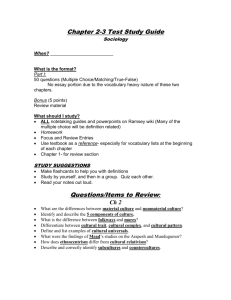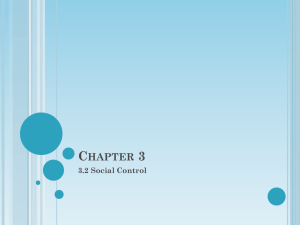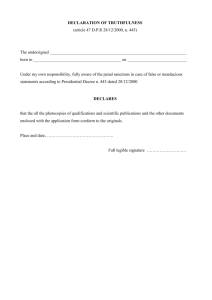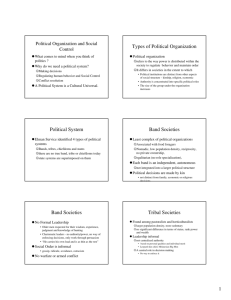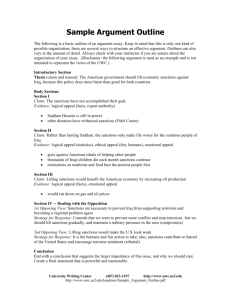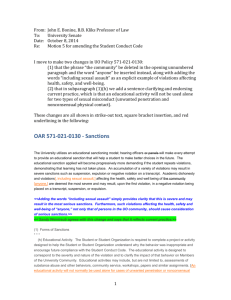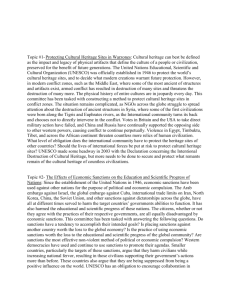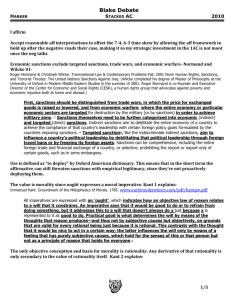Cultural Universals
advertisement
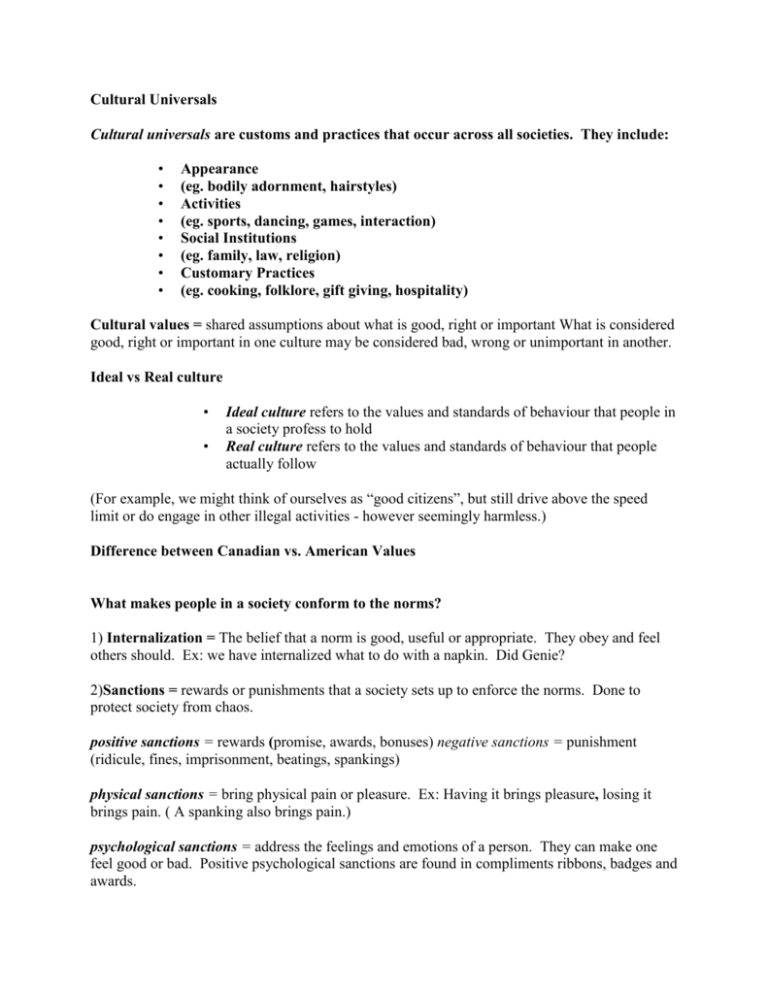
Cultural Universals Cultural universals are customs and practices that occur across all societies. They include: • • • • • • • • Appearance (eg. bodily adornment, hairstyles) Activities (eg. sports, dancing, games, interaction) Social Institutions (eg. family, law, religion) Customary Practices (eg. cooking, folklore, gift giving, hospitality) Cultural values = shared assumptions about what is good, right or important What is considered good, right or important in one culture may be considered bad, wrong or unimportant in another. Ideal vs Real culture • • Ideal culture refers to the values and standards of behaviour that people in a society profess to hold Real culture refers to the values and standards of behaviour that people actually follow (For example, we might think of ourselves as “good citizens”, but still drive above the speed limit or do engage in other illegal activities - however seemingly harmless.) Difference between Canadian vs. American Values What makes people in a society conform to the norms? 1) Internalization = The belief that a norm is good, useful or appropriate. They obey and feel others should. Ex: we have internalized what to do with a napkin. Did Genie? 2)Sanctions = rewards or punishments that a society sets up to enforce the norms. Done to protect society from chaos. positive sanctions = rewards (promise, awards, bonuses) negative sanctions = punishment (ridicule, fines, imprisonment, beatings, spankings) physical sanctions = bring physical pain or pleasure. Ex: Having it brings pleasure, losing it brings pain. ( A spanking also brings pain.) psychological sanctions = address the feelings and emotions of a person. They can make one feel good or bad. Positive psychological sanctions are found in compliments ribbons, badges and awards. Negative psychological sanctions are found in insults and rejection. Formal sanctions = rewards or punishments used to enforce the laws of organizations, institutions, societies and are carried out by some regulatory body (award-granting organizations, police). Example of rewards: physical: a trip : psychological : Victoria cross. Example of punishments: physical : capital punishment, imprisonment; psychological: threat of being dispelled or loss of a license. Informal sanctions = tend to be unwritten and are based on personal relations involving folkways and mores, and tend to be based on public opinion. Physical informal sanctions: people in your neighbourhood take up a collection for you because they want you to be able to pay the lawyers bill for having defended yourself against a thief. Psychological informal sanctions: insults, gossip, avoidance, rejection. Social sanctions are 1) positive or negative, 2) physical or psychological, 3) formal or informal. The development of cultures: cultures hold common beliefs (values) about what is right and wrong. Second, cultures develop norms, (folkways, mores and laws) Third, cultures develop sanctions to help enforce the value system (norms, etc)
